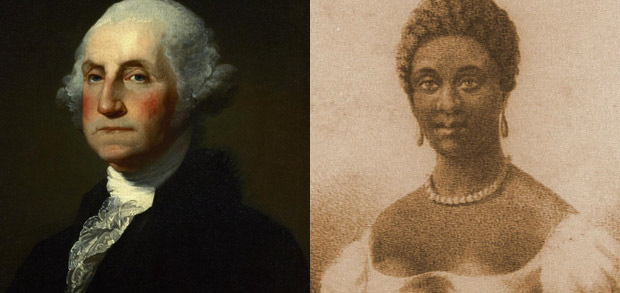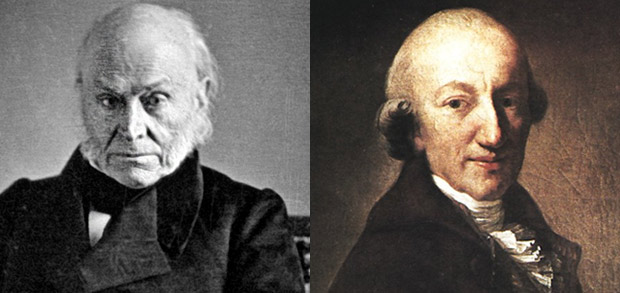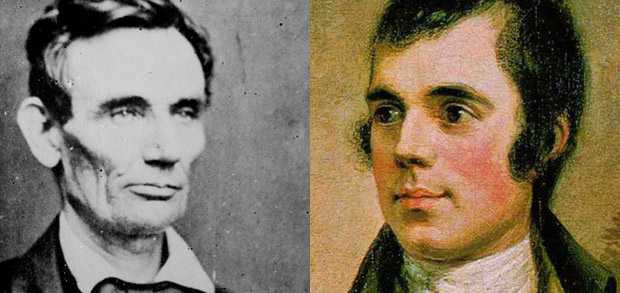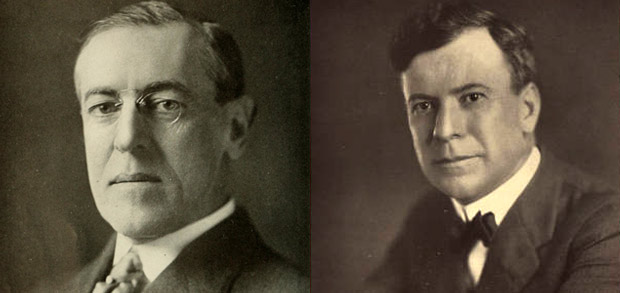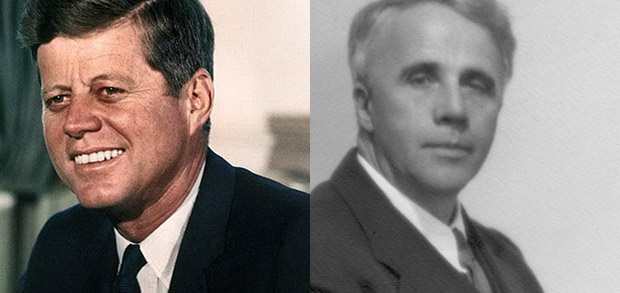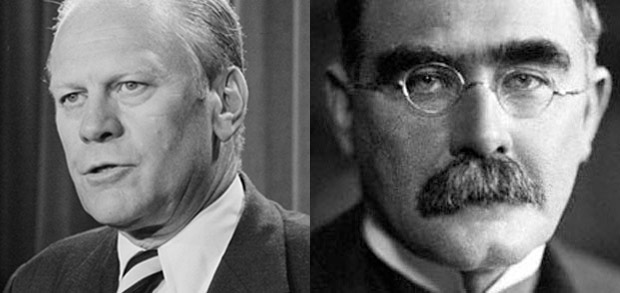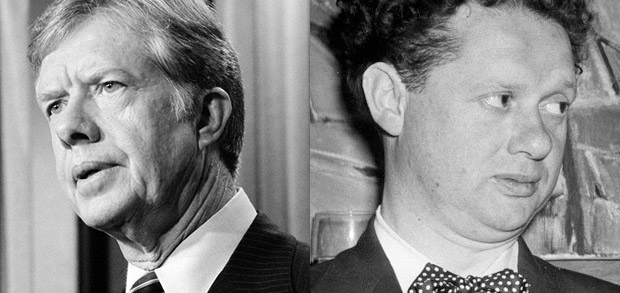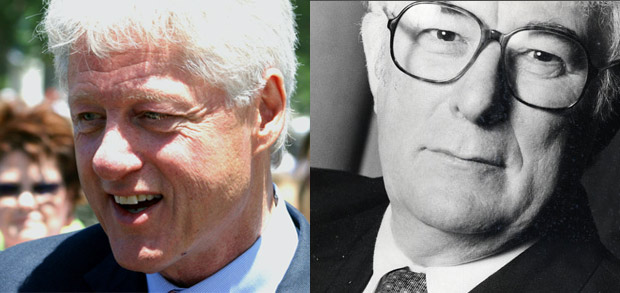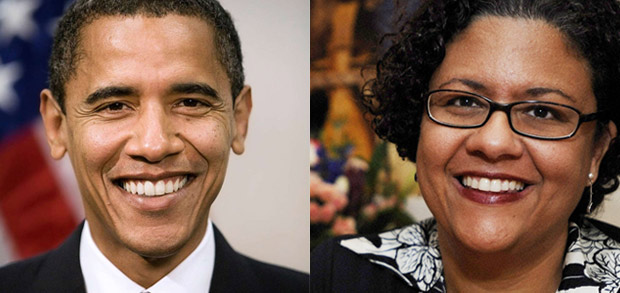The dramatist sets in operation a chain of circumstances in which his characters are unconsciously brought to book by their own past. The method of the naturalistic novelist is quite different; absolved of the necessity of a demonstration, he tends to be less and less concerned with incident and to become preoccupied with the effect of experience on character; the drama is purely internal and is revealed by minute and acute psychological analysis. When this method is applied to dramatic material the very absence of the terms in the demonstration essential to the dramatist produces the effect of irony. Consider, for example, Richard Cory:
[. . . ]
Here we have a man's life-story distilled into sixteen lines. A dramatist would have been under the necessity of justifying the suicide by some train of events in which Richard Cory's character would have inevitably betrayed him. A novelist would have dissected the psychological effects of these events upon Richard Cory. The poet, with a more profound grasp of life than either, shows us only what life itself
would show us; we know Richard Cory only through the effect of his personality upon those who were familiar with him, and we take both the character and the motive for granted as equally inevitable. Therein lies the ironic touch, which is intensified by the simplicity of the poetic form in which this tragedy is given expression.
from The Poetry of Edwin Arlington Robinson: An Essay in Appreciation. First published in 1923. Reissued in 1969 by Kennikat Press (Port Washington, N.Y.)
Ellsworth Barnard
Form in
poetry, however, as has been said, involves not only adherence to a central story or theme, but some kind of progress or development toward a final effect to which each particular part has made its particular contribution.
A simple and famous illustration
is Richard Cory . . . .
We need not crush this little piece under a massive analysis; a few more or less obvious comments will suffice to show how carefully the poem is put together. The first two lines suggest Richard Cory's distinction, his separation from ordinary folk. The second two tell what it is in his natural appearance that sets him off. The next two mention the habitual demeanor that elevates him still more in men's regard: his apparent lack of vanity, his rejection of the eminence that his fellows would accord him. At the beginning of the third stanza, "rich" might seem to be an anticlimax—but not in
the eyes of ordinary Americans; though, as the second line indicates
, they would not like to have it
thought that in
their eyes wealth is everything. The last two lines of the stanza record a total impression of a life that perfectly realizes the dream that most men have of an ideal existence; while the first two lines of the last stanza bring
us back with bitter emphasis to the poem's beginning, and the impassable gulf, for most people—but not, they think, for Richard Cory—between dream and fact. Thus the first fourteen lines are a painstaking preparation for the last two, with their stunning overturn of the popular belief.
To repeat this sort of analysis for each of Robinson's poems would be as profitless as tedious to most readers, who will want to do it
themselves if
they want it done at all. We may, however, dwell a little on some of the patterns that the poet likes to follow. And first of all, it is to be observed that the structure of
Richard Cory—the steady build-up to the surprise ending in the last line, is not characteristic. This fact fits in with what was said in the preceding chapter about Robinson's handling of the sonnet, and the quiet, unhurried close that he most often gives it; as well as with what has been all along implied concerning his distaste for every sort of sensationalism. But sometimes, as in
Richard Cory, a different turn of mind reveals itself, perhaps sprung from the perception that life
does have surprises, that sometimes only at the very last do we find the key piece that makes the hitherto puzzling picture all at once intelligible.
from Edwin Arlington Robinson: A Critical Study. Copyright © 1952 by the MacMillan Company.
W. R. Robinson
"Richard Cory" is perhaps the best-known example of his respect for the inaccessible recesses of man’s inner being . . .
The first reference to Tilbury Town occurs in "John Evereldown," which appeared in
The Torrent and the Night Before (1896), Robinson’s first volume of poetry. Here, simply a place, it has not yet acquired a dramatic role. In other poems of the same volume, however, the small-town community, though unnamed, does begin to assume such a role, as for instance in "Richard Cory," where the collective "we" speaks as a character.
From Edwin Arlington Robinson: A Poetry of the Act. © 1967 by The Press of Western Reserve University.
Hoyt C. Franchere
In the Edwin-Emma-Hennan relationship, however, rivalry apparently developed into jealousy. The depth of the poet's involvement is revealed in "Cortege," as has been said. To what extent that rivalry-jealousy pattern was subliminal is hard to say; but not, by any means, was all of it so. Significantly, Edwin wrote to Harry DeForest Smith as early as March 11, 1894, betraying a conscious awareness of the conflict that continued: "Your third belated letter came Saturday, and I was glad to hear that you are coming home in a fortnight. You say that your time will be pretty well taken up, but you may be willing to take one or two brief vacations and listen to my five wild sketches—not including 'Marshall.' I have another in my mind on
the philosophical enmity of two brothers who were not born for the same purpose." [italics added]
In any case, knowing that the rivalry existed makes it easier to hear the bitter overtones in poems that seem indubitably to be portraits of Hennan Robinson. "Richard Cory" comes first to mind because it is a nearly perfect representation of Edwin's next older brother; but, since this poem was written early, it may have been merely a well-imagined projection of things to come or of things Robinson had observed. "Bewick Finzer," "Bokardo," and "Flammonde," however, are, as the
Memoir suggests, among the poems closely associated with Hennan.
Cory, rich, "imperially slim," perfectly schooled in all the amenities, the most admired man in Tilbury Town, went home one day and "put a bullet through his head." Manifestly, Hennan took the slower, more measured, course of drink; but the result was the same, almost as though he sought death. How much more sharply the irony penetrates, though, if we know about the myth! It is double-edged.
[. . .]
We have already seen, in an examination of those poems that reflect personal history, Robinson's involvement with the problem of failure in our lives. Why he devoted so many of his writing hours to this subject is not easily explained. Possibly he was motivated by his own failure to achieve recognition that he sought, a feeling that persisted in him for many frustrated years. Unquestionably, he was moved deeply by the tragic incidence of failure in the lives of his two brothers. It is apparent, however, that man as failure became for him a part of his cosmic view of the world he lived in. Perhaps the "why" was as inexplicable to him as the mystery of life itself. How he treated his failure-figure, whose faces peered over the edge of his writing table, sometimes despondently, sometimes hopefully, is of greater significance.
Broadly defined, the theme follows two patterns: one is the failure who seems to be beyond redemption, who does not, finally, possess the saving grace of character that would find favor in men's eyes, or who does not experience some inner change that would render less severe the general indictment against him. The other is the failure who for reasons of almost infinite variety is redeemed, exonerated, saved, or in whom the reader finds some aspect or some alteration of the inner man that lifts him from the shame of complete ignominy.
The first of these types is not so numerous as the second, but he is distinctly marked, even then. While in another relationship Richard Cory was considered in the preceding chapter, he falls into the general class of the failure; and the poem in which he is the central figure lives because it is a powerful statement of an inner, even if an undefined, tragedy in the life of one man. The external man the "people on the pavement" praised and envied and acknowledged; for Cory, to them, seemingly had everything. What private sense of failure, what personal recognition of his own inadequacy, or what secret unfulfilled longing drove Cory to suicide Robinson does not say; he leaves the reason for his readers to determine. But the crashing climactic moment of the night that Richard Cory "went home and put a bullet through his head" appalls every reader with its suddenness. After he has recovered from his shock and has reflected upon the intensity of the poem created by the contrast of the somber people of the community on the one hand and the brilliant heroic stature of Cory on the other, the reader is left with a sharp sense of emptiness, of a life wasted, of failure—and of Cory's hidden agony.
from Edwin Arlington Robinson. New York: Twayne Publishers, Inc., 1968. Copyright © 1968 by Twayne Publishers.
Radcliffe Squires
The suicide of Richard Cory is not, or ought not to be, a surprise. It is an inevitability, predetermined by the subjugation of selfhood. Even more significantly, however, the subjugated self reclaims itself in the act of suicide. Not that the poem recommends suicide as a way of asserting individuality. Rather, it observes an extreme gesture in an extreme case. To see the poem in this way is to see it as neither bitter nor negative, at least not entirely so. We read ill if we cannot see that Richard Cory is granted an oblique triumph at the end, for he has refused to suppose himself made happy by what "everyone" supposes will make him everyone happy. In short, Richard Cory’s self emerges neurotically perhaps; still it emerges triumphant over the imposed role of "success."
From Edwin Arlington Robinson: Centenary Essays. Ed. Ellsworth Barnard. Copyright © 1969 by the University of Georgia Press.
J.C. Levenson
"Richard Cory" conceals its powerful particularity by appearing almost tritely conventional. But since the surprise ending of Cory’s suicide does not, after a first reading, surprise anyone but the "we" of the poem, it is worth looking for deeper causes of its hold on readers. One the one hand, there is Robinson’s tact in presenting the title figure. By his scheme, moral blindness is overcome, not by factitious insight into another mind, but by respectful recognition of another person. So he avoids the nineteenth-century, common-sense method of realistic characterization and gives us nothing of his subject’s motives or feelings. He sketches in Cory’s gentlemanliness and his wealth, but not his despondency, and he lets the suicide seal the identity of the man forever beyond our knowing or judging. On the other hand, he can characterize the chorus just because they lack individuality, and he invites us to judge their blindness on pain of missing the one sure meaning of the poem:
So on we worked, and waited for the light,
And went without the meat, and cursed the bread;
And Richard Cory, one calm summer night,
Went home and put a bullet through his head.
They do not serve who only work and wait. Those who count over what they lack and fail to bless the good before their eyes are truly desperate. The blind see only what they can covet or envy. With their mean complaining, they are right enough about their being in darkness, and their dead-gray triviality illuminates by contrast Cory’s absolute commitment to despair.
From Edwin Arlington Robinson: Centenary Essays. Ed. Ellsworth Barnard. Copyright © 1969 by the University of Georgia Press.
Wallace L. Anderson
In April 1897 Robinson, reporting the local news to Harry Smith, wrote "Frank Avery blew his bowels out with a shot-gun. That was bell." By the end of July he had completed, he told Miss Brower, "a nice little thing . . . . There isn't any idealism in it, but there’s lots of something else - humanity, may be. I opine that it will go." It has become one of the most familiar of Robinson's poems. But poems, like people, sometimes suffer from what familiarity so often breeds. This is especially true if the work appears to be fairlv simple and uncomplicated. It may be what led Yvor Winters to remark that "In 'Richard Cory' . . . we have a superficially neat portrait of the elegant man of mystery; the poem builds up deliberately to a very cheap surprise ending; but all surprise endings are cheap in poetry, if not, indeed, elsewhere, for poetry is written to be read not once but many times." This remark is itself surprising, for not all surprise endings are cheap, nor does a surprise ending prevent a work from being read with pleasure more than once. The use of surprise is a legitimate device that occurs in all literary forms. The issue is not whether the reader has been surprised but whether the author has so prepared his ground that the ending is a justifiable one, consistent with the total context. Actually, "Richard Cory" has a rich complexity that becomes increasingly rewarding with successive readings.
A wealthy man, admired and envied by those who consider themselves less fortunate than he, unexpectedly commits suicide. Cory's portrait is drawn for us by a representative man in the street, who depicts him as "imperially slim," "a gentleman from sole to crown," "richer than a king." An individual set apart from ordinary mortals, Cory is, in their opinion, a regal figure in contrast to his admiring subjects, "the people on the pavement." This contrast between Cory and the people, seemingly weighted in favor of Cory in the first three stanzas, is the key to the poem. Nowhere are we given direct evidence of Cory's real character; we are given only the comments of the people about him, except for his last act, which speaks for itself. Ironically, Cory's suicide brings about a complete reversal of roles in the poem. As Cory is dethroned the people are correspondingly elevated. The contrast between the townspeople and Cory is continued in the last stanza. The people
worked, and waited for the light,
And went without the meat, and cursed the bread;
but they went on living. Cory, wealthy as he was, did not live; instead, be "put a bullet through his head." This occurred "one calm summer night." Calm, that is, to the people, not to Cory. Because the people "went without the meat, and cursed the bread," it might seem that life was both difficult and meaningless to them. But difficulty is not to be equated with meaninglessness; in fact, Robinson is suggesting just the opposite. "Meat" and "bread" carry biblical overtones that remind us that man does not live by bread alone. It is "the light" that gives meaning. In opposition to meat and bread, symbols of physical nourishment and material values, light suggests a spiritual sustenance of greater value. As such it clarifies the intent of the poem, for it reveals the inner strength of the people and the inadequacy of Cory. Belief in the light is the one thing the people had; it is the one thing Cory lacked. Life for him was meaningless because he lacked spiritual values; he lived only on a material level. Once this is realized, the characteristics attributed to Cory in the first three stanzas take on added significance and become even more ironic: He was "a gentleman from sole to crown" (appearance and manner); he was "clean favored" and "slim" (physical appearance); he was "quietly arrayed" (dress); he was "human when he talked" (manner); he "glittered" (appearance); he was "rich" (material possessions); he was "schooled in every grace" (manner). "Glittered" not only emphasizes the aura of regality and wealth but also suggests the speciousness of Cory. Even his manner is not a manifestation of something innate but only a characteristic that has been acquired ("admirably schooled"). All these details are concerned with external qualities only. The very things that served to give Cory status also reveal the inner emptiness that led him to take his own life.
From Edwin Arlington Robinson: A Critical Introduction. Copyright © 1967 by Wallace L. Anderson.
David Perkins
"Richard Cory" concentrates on a particular character. The poem is no lyric self-expression, but an impersonal, objective report. The setting is an American town of the time, the provincial imagination engrossed and dazzled by a figure of consummate gentlemanly elegance (of royalty, as the townsfolk take it, if one regards a counterpoint in the images "crown," "imperially slim"). The idiom, though cultured, is colloquial, not in the least "poetic." Except at the end, the poem selects the most ordinary incidents as points of focus and plays down emotion.
Above all there are the irony and humor from which the poem chiefly derives its effectiveness. The surprise ending may be a little easy, and the implied moral--something like "how little we really know about the lives of others!"--may be trite. (The "idea" of the poem, Douglas Bush suggests to me, may have been taken from a bit in
Bleak House, chapter 22.) But what matters is the attitude of the speaker toward himself and especially toward the other townspeople: his self-awareness, ironic distance, and detached amusement with the human comedy. The poem is subtle, however, and it is easier to sense this attitude than indicate its source. It depends very much on the characterization of the speaker through language, syntax, and metrical form. The idiom ("clean favored," "in fine") is itself "admirably schooled," the syntax controlled and orderly, and the neatness of the quatrains further contributes to the impression. One infers that the speaker is an educated man and hence that his self-identification with the too-admiring townsfolk is half ironic, a circumstance that becomes especially clear in the exaggeration of the lines,
So on we worked, and waited for the light,
And went without the meat, and cursed the bread.
The speaker has a self-conscious, fastidious awareness of his language. In the phrase, "yes, richer than a king," the "yes" means, "yes, we even used the stock cliché," and one thus understands that the phrasing throughout is adjusted in irony to convey the sayings and feelings of the townsfolk more than his own--for example, the subtly telling cliché, "from sole to crown," or the excessive enthusiasm (and bathetic fall) in the phrase "imperially slim." A speaker so aware must also be aware of the discrepancy between the commonplace actions of Cory (going down town, saying "good-morning," or simply walking) and the reactions of the townspeople (staring from the pavement, "fluttered pulses," their feeling that Cory "glittered when he walked"). Even the initial metrical inversion of the third line ("He was") counts by glancing invidiously at "we" others. The result is a reflective, shrewdly humorous portrait by implication of the town and townsfolk. Low-keyed, cerebral, ironic, impersonal, mingling humor and seriousness and implicating a whole social milieu, the poem was without precedent or even parallel in the 1890s.
From A History of Modern Poetry: From the 1890s to the High Modernist Mode. Copyright © 1976 by the President and Fellows of Harvard College.
Charles Sweet, Jr.
"Richard Cory," one of Edwin Arlington Robinson’s most anthologized poems, is also one of the least examined. Those critics who have considered the poem cast it in a familiar mold: that Richard Cory’s "soul is black with despair," that the people possess "the light,"
and that finally the people ironically fail to see their wishing to he like Cory is ultimately ludicrous because of their own intrinsic spiritual values.
The main problem with the popular interpretation is that it fails suitably to account for the tale being filtered through the mind of a narrator, a single one of the "people on the pavement." The resulting view tends to thrust Richard Cory into the spotlight and de-emphasize the character of the narrator. Perhaps we would do well to remember D. H. Lawrence’s admonition, "Trust the tale, not the teller," and begin to view Richard Cory through the eyes of an unreliable, unaware narrator. Moreover, such a focal point has the distinct advantage of helping to explain
why Richard Cory really committed suicide.
As "Richard Cory" is only sixteen lines, we scarce need be reminded at the beginning that because of its compactness each word becomes infinitely important. While stanza one introduces the narrator, more importantly it emphasizes his limited view of Richard Cory. Line one introduces us to Cory while line two establishes that the narrator has only an external view of Cory. From this viewpoint, then, the narrator proceeds to make an assortment of limited value judgements. Richard Cory resembles a king ("crown," "imperially slim," and "richer than a king") ; obviously the speaker’s imagery (as well as movement in "sole to crown") reveal his concerns with Cory’s status and wealth (further emphasized by "glittered"). Charles Morris notes the speaker’s use of anglicisms ("pavement," "sole to crown," "schooled," and "in fine") pictures Cory as "an English king;" thus, the narrator can be seen expressing prejudices in terms of nationalistic pride.
Stanza two, however, appears to contrast and even contradict the previously established viewpoint. Lines five and six offer a different wording from any other lines as the "And he was always . . ." contrast with "(And) he was. . ." of lines three, nine, and eleven where the emphasis is on Cory’s regal nature; not only the repetition of a similar structure in successive lines but also the addition of the word "always" suggest that while external appearances seem eternal verities, they are only temporary illusions. Whereas Richard Cory
seems at times like a king the narrator admits he
is always "quietly arrayed" and "human." Thus, the speaker appears to contradict himself, or, more exactly, state the truth about Richard Cory: Cory is not a king; he is human. The narrator then confesses to his own hyperbole, his own exaggerated viewpoint of the man. In the next lines the narrator even acknowledges ("But still") the collective fault of the people; the lines might be paraphrased as follows: even though we knew deep inside us Cory was human, something else inside compelled us to blow up his proportions ("he fluttered pulses" and "he glittered"). The narrator admits essentially to this view in lines eleven and twelve:
In fine, we thought that he was everything
To make us wish that we were in his place.
Why the people feel such a need has already been suggested by the representative narrator’s types of envy. Charles Burkhart remarks that their view of Cory is "a familiar illusion which brightens their drab lives."
Yet even these reasons conceal the deepest motivations. In fact, to understand the final effects of Cory on the people we need to see precisely what other information the narrator reveals and place it in its proper perspective.
In light of the narrator’s attitude line one establishes that it is Richard Cory who comes down town; in other words, Richard Cory makes an attempt to communicate with the people. His activity contrasts with their passivity or stasis ("on we worked and waited"). Consonant with his general communicative attempts in line eight the very "human" Richard Gory tries to talk with the people. As nowhere in the poem is it suggested that the people try to come to Richard Cory, nowhere is it either intimated that they approach him, much less respond to him. Quite simply the people have erected a barrier around themselves and their only reaction to Cory is stasis and silence. The phrase "when he talked" even suggests that Cory makes more than a toekn effort. The importance of communication is revealed through a familiar Robinson image — light. In line thirteen the speaker claims the people "waited for the light" but in line eight the narrator has admitted that Richard Gory "glittered." We need not be reminded by Charles T. Davis that light in the early Robinson represents "the perception of spiritual truth" and in the later Robinson, "the understanding or truth in human relationships"
to see that Richard Cory becomes a Promethean figure bringing the word of the necessity of human communication for survival. Cory, not the people, then, is the man of spiritual values (such a context is suggested by the obvious religious overtones of "meat," "bread," and "light"). The first three stanzas are not, as Wallace Anderson believes, "seemingly weighted in favor of Cory;"
they
are weighted in favor of Cory.
Richard Cory’s suicide can thus be seen in a different light. Instead of suicide because of "inner emptiness"
or "an absolute commitment to despair,"
or because he was "sick,"
we are presented with a case of regicide; the townspeople with some degree of consciousness have extinguished the light. The irony of the ending, then, is not that the people were endowed with greater values than Cory or that simply they failed to understand his message, or even that the light they sought glowed in their midst all the time. The irony is that through their own mental prejudices and unfounded exaggerations the people, like eagles, claw at Prometheus so that the chains of inhumanity imprison him forever; it matters not that it is Cory who pulls the trigger since the people have pointed a weapon at his temple.
Furthermore, it is probative to examine the speaker’s voice to establish the results of enforced alienation. The tone of the last two lines is pure matter-of-factness; nowhere does the narrator betray any emotion over Cory’s death, and we might go so far as to say there is a certain satisfaction in the narrator’s voice. Whereas the narrator had once looked up at Richard Cory’s "crown," he now looks down at simply "his head." Appropriately the poem closes in darkness.
It obviously becomes necessary, then, to see Richard Cory certainly in more heroic proportions but also as more of a catalyst than focal point. "Richard Cory" is not a painting of a gentleman, but a portrait of the portraiteer. The poem serves as an indictment of those who study at a distance, of those who fail to get a feel of their subject, and of those who let petty personal emotions deprive themselves of human companionship. While Robinson’s temporal assessment may be exaggerated, his remark to Esther Willard Bates while walking up West Peterborough that he was "perhaps, two hundred years in advance of his time . . . in . . . his absorption in the unconscious and semiconscious feelings and impulses of his characters"
points to our need not to judge by appearances either when we examine his poetry.
From "A Re-Examination of ‘Richard Cory.’" Colby Library Quarterly 9 (1972).
Richard Gray
In ‘Richard Cory' he explores the anonymous surfaces of life in another way - by suggesting, however cryptically, the contrast between those surfaces and the evident hell that lies beneath them. The character who gives the poem its title is described in admiring detail, from the perspective of his poorer neighbours. 'He was a gentleman from sole to crown', the reader is told, 'Clean favoured, . . . imperially slim' and 'rich - yes, richer than a king'. Comments like these hardly prepare us for the horror of the final stanza:
So on we worked, and waited for the light,
And went without the meat, and carved the bread,
And Richard Cory, one calm summer night,
Went home and put a bullet through his head.
The irony of these lines, and the poem as a whole, depends on the contrast between the serenity of Cory's appearance and the violence of his death; its melancholy, upon our recognising that Cory - for all his privileges - is as acutely isolated and spiritually starved as anyone else. 'There is more in every person's soul than we think', Robinson observed once, 'Even the happy mortals we term ordinary . . . act their own mental tragedies and live a far deeper and wider life than we are inclined to believe possible in the light of our prejudices'. This is precisely the lesson that the 'we' of the poem, Cory's neighbours in Tilbury Town, never learn: the night on which Cory shoots himself remains 'calm' in their view, and the use of that word only underlines the distance between him and them.
Quiet desperation, the agony that Richard Cory's neighbours failed to notice, is a distinguishing feature of many of Robinson's characters. The despair may come, apparently, from emotional poverty ('Aaron Stark'), the pain of loss and bereavement ('Reuben Bright', 'Luke Havergal'), or the treadmill of life ('The Clerks'): whatever, it is palpably there in an awkward gesture, a stuttered phrase, a violent moment as in 'Richard Cory' or, as in 'The House on the Hill', the sense that behind the stark, simple words lies an unimaginable burden of pain. Many of Robinson's poems, in fact, derive their power from reticence, a positive refusal to expand or elaborate.
From American Poetry of the Twentieth-Century. Copyright © 1990 by the Longman Group UK Limited.
John Lucas
Well, it isn't a perfect poem, but it is certainly a remarkable one.
. . . .
It has the plain-jane manner that Robinson loves to affect and as a result of which he gains for himself just the right amount of freedom to let otherwise unremarkable phrases stand out. Taken in context, the phrase "imperially slim," for example, has an almost sensuous, stipple, and therefore slightly mocking grace about it. "Richard Cory" is wry, grim, laconic: it is a typical Robinsonian perception of the bleak comedy of the human condition, and this perception features in much of his best--and worst--work. In addition, the poem has that first-rate anecdotal quality which Robinson shares with Hardy. . . .
More importantly, however, he also shares with Hardy the ability to tell a story in verse in such a way as to let the smallest and most insignificant detail take on meaning and value. (Even the "calm" summer night in "Richard Cory' isn't quite the irrelevant detail it may at first seem, though the point it is making is admittedly an obvious one.)
From Moderns and Contemporaries. Copyright © 1985 by John Lucas.
William Pratt
Richard Cory, the wealthiest man in town, whose wealth, instead of making him happy, only makes him envied by the townspeople and isolated from them. He is a success in their eyes but a failure in his own, as we judge from the fact that, despite his high position in the town, he commits suicide. The motive for his suicide remains a mystery, for Robinson portrays him only from the outside, from the view of those who admired him and "thought that he was everything /
To make us wish that we were in his place." Since the reason for his death can never be fathomed, Richard Cory is one of Robinson’s best-known but most enigmatic characters. No matter how many times they are read, the final lines of the poem "Richard Cory" never lose the shock of his sudden and unexpected end:
And Richard Cory, one calm summer night,
Went home and put a bullet through his head.
Was it his conspicuous wealth, his lonely existence without family or kin, or perhaps some secret crime he committed that led him to take his own life? We never know; what we are left with is the darkness inside his soul, which only grows more impenetrable as one reflects on it. Robinson keeps himself out of the poem, letting it be told by the people of the town, the "we" who are left to puzzle it out at the end. Despite having a name symbolic of a noble family—
Richard Cory rhymes with
glory and evokes the name of Richard Coeur de Lion—Cory’s death leaves behind no other "king" in Tilbury Town.
from Singing the Chaos: Madness and Wisdom in Modern Poetry. Copyright © 1996 by the Curators of the University of Missouri
taken from:
Department of English, University of Illinois at Urbana-Champaign

